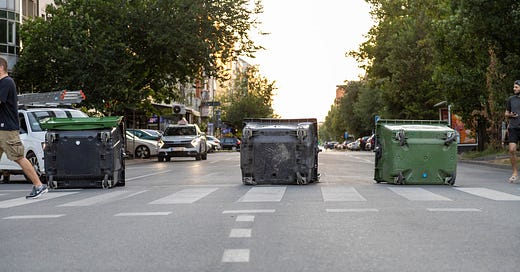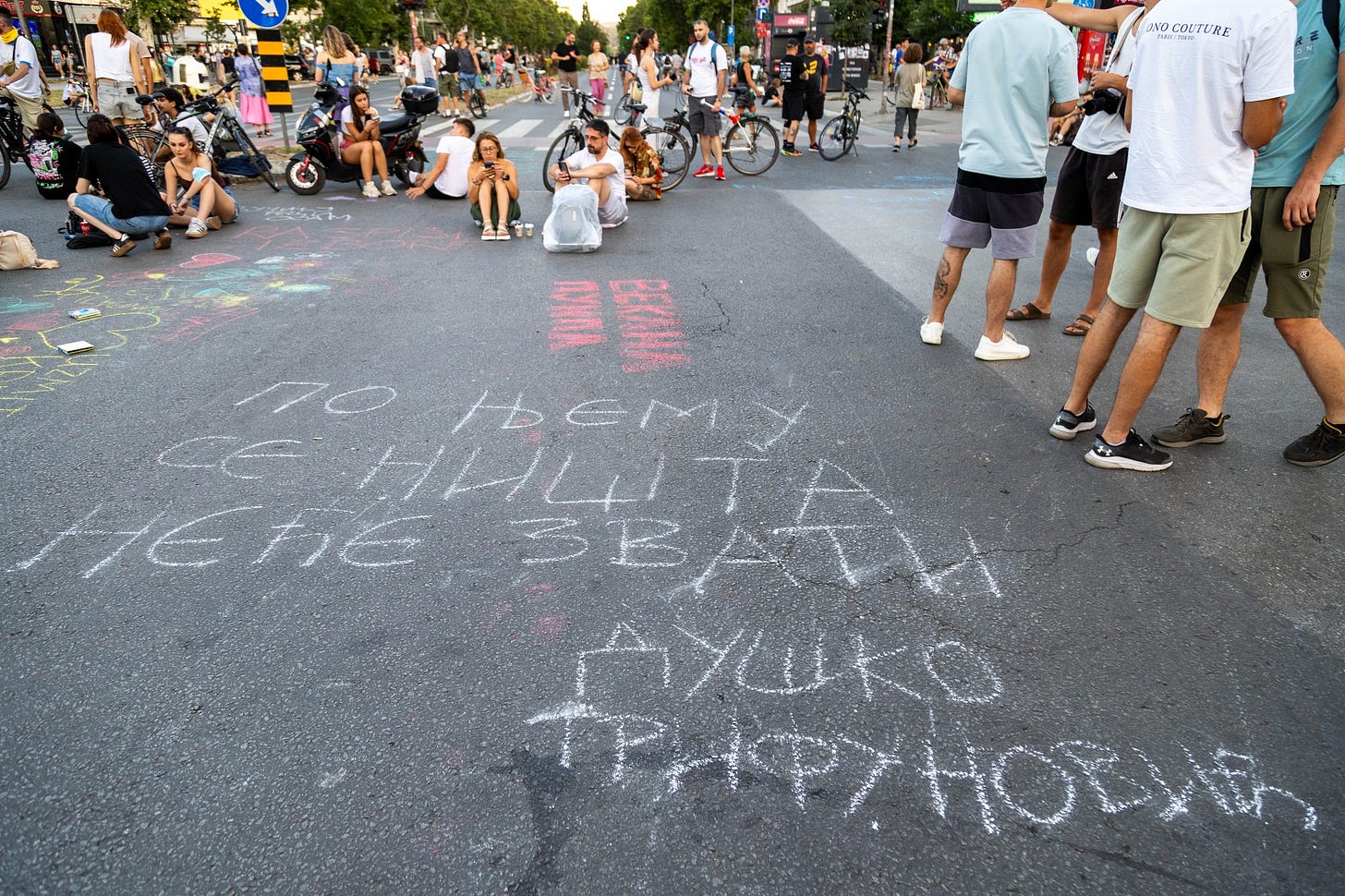Protests Persist in Serbia
In Face of Police Repression, the People Demand Snap Elections
Thousands of people across Serbia continue to take to the streets, demanding snap elections, an end to police harassment, and the release of activists arrested and detained over the past week. Since the latest central protest in Belgrade at the end of June, authorities have ramped up repression against students, university staff, local opposition figures, and others who have spent the past eight months mobilizing for justice. Their demands stem from the deadly collapse of a railway canopy in Novi Sad that killed over a dozen people—and from the structural failings that made the disaster possible.
Over the past week, numerous reports from the ground have documented police violence against demonstrators, along with multiple attempts by armed officers to intimidate those blocking crosswalks as part of civil disobedience actions. As part of the same civil disobedience campaign, protesters in many localities have scattered trash bins to assert control of public space. In a specific display of solidarity, sanitation workers in some cities emptied the bins, but returned them to the positions chosen by protesters, rather than removing them from the streets.
Support for the protests, including its student groups, continues to grow. The movement, which began in November with university occupations and demands for accountability, has gained widespread backing from legal experts, cultural workers, and academics. “Most of us work in public space, art, and media, and we will not be silent,” read a statement from graduates of the Faculty of Dramatic Arts in Belgrade. “We will be a voice of solidarity and support for colleagues on the front lines of the fight for the rule of law and basic human values. An attack on one of us is an attack on all of us.”
Authorities escalate repression
While representatives of the ruling Serbian Progressive Party (Srpska napredna stranka, SNS) claim the protests are dying down, the evidence on the streets says otherwise. Many analysts believe the energy of recent months, which has sparked demonstrations even in long-marginalized regions, means the mobilization is actually gaining more ground.
President Aleksandar Vučić has so far refused to seriously engage with protesters’ demands, and there is little indication this might change. Instead, he is doubling down on his administration’s agenda, which includes transferring important assets into private hands through projects like Belgrade Waterfront, Expo 27, and the controversial Rio Tinto lithium mine in Jadar.
While condoning police violence against demonstrators, Vučić has simultaneously pardoned ruling-party activists accused of physically assaulting students earlier in the protests.
The state crackdown has drawn criticism from local and international groups, who are demanding an immediate end to the targeting of students, journalists, and others involved in or documenting the protests.






